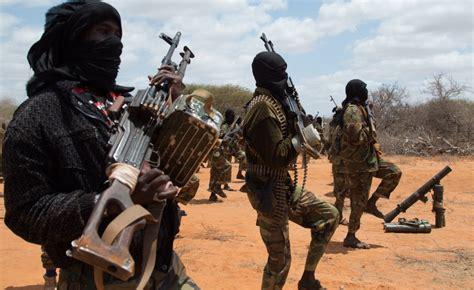
Foreign fighters flocking to Islamic State in Somalia
The Islamic State terror group’s small but influential affiliate in Somalia is growing, thanks in part to what the United Nations describes as an “influx of foreign fighters.”
A new report this week by the U.N. Sanctions Monitoring Team for Somalia warns that fighters, including some from countries in the Middle East, have helped the Islamic State’s Somali affiliate, also known as IS-Somalia, to more than double in size to between 600 and 700 fighters.
“Foreign fighters arrive in Puntland [Somalia] using both maritime and overland routes,” according to the report, which is based on intelligence estimates from U.N. member states.
The foreign fighters “have expanded and enhanced the group’s capabilities,” the report said, strengthening IS’s presence in Somalia’s Puntland region while also helping it take territory from its key rival, al-Qaida-linked terror group al-Shabab.
Intelligence sources described the IS-Somalia advance, especially in Puntland’s Cal Miskaad mountains, as a “drastic change,” crediting the foreign fighters for IS-Somalia’s change in fortune.
The U.N. report said the IS foreign fighters have come from at least six countries: Syria, Yemen, Ethiopia, Sudan, Morocco and Tanzania. It also said some captured foreign fighters have reported working with trainers who have come from parts of the Middle East.
The new report builds on previous warnings from U.S. and Somali officials, including the commander of U.S. Africa Command, who told VOA last month that IS-Somalia had grown “twofold” over the past year.
Somali officials have likewise warned of hundreds of foreign fighters flocking to Somalia to join the ranks of the IS affiliate.
“This reporting on an influx of foreign terrorist fighters in Africa is concerning,” said Austin Doctor, the director of counterterrorism research initiatives at the National Counterterrorism Innovation, Technology and Education Center.
And while the flow of foreign fighters to Somalia pales in comparison to the tens of thousands of fighters who flocked to join IS in Syria and Iraq during the height of the terror group’s self-declared caliphate, Doctor told VOA the trend is likely to continue.
“A number of factors present in the Horn [of Africa] and other Africa regions as well will likely appeal to aspiring travelers looking to join the rank and file of an extremist militant organization,” he said. “Global and local security forces should prepare to see more of this in the near term.”
There are likewise concerns about IS-Somalia’s growing prominence on the global stage.
Since 2022, Somalia has been home to al-Karrar, one of nine regional Islamic State offices established to help sustain the terror group’s global capabilities.
The U.N. report cautions that despite some leadership losses, the al-Karrar office has become both more powerful and more decentralized, making it more difficult to disrupt its activities.
And the report confirms that former IS-Somalia leader Abdulqadir Mumin, who escaped a U.S. airstrike this past June, has been elevated to head of the Islamic State’s general directorate of provinces, “placing him in a leadership role over [IS] affiliates in Africa.”
IS-Somalia, according to the report, is now being led by Mumin’s former deputy, Abdirahman Fahiye Isse, with Abdiwali Waran-Walac running IS-Somalia’s finances.
And the group’s finances appear to be in good shape.
“Given the relatively small size of [IS]-Somalia, the group can sustain itself and generate additional revenue for other [IS] affiliates through the al-Karrar office,” the report said.
Source » voanews.com





